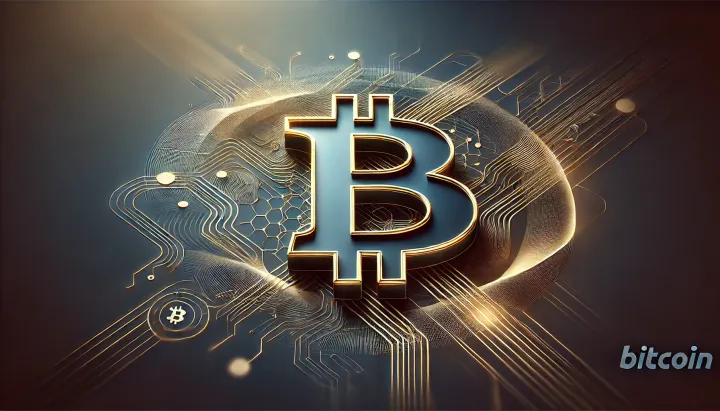Bitcoin’s Role in Resisting Censorship and Financial Exclusion
The September 27, 2024 episode of THE Bitcoin Podcast, Walker interviews Adam O'Brien, the founder and CEO of Bitcoin Well, exploring the deep-seated issues within the traditional fiat financial system and advocating for Bitcoin as a solution to these problems.

Briefing Notes
My 'briefing notes' summarize the content of podcast episodes; they do not reflect my own views. If you have comments about this briefing note, please leave a comment below (requires signing up for a free blog subscription). Note that some of the podcast episodes I summarize may be sponsored: don't trust, verify, if the information you are looking for is to be used for decision-making.
Summary
This briefing note distills key insights from the September 27, 2024 THE Bitcoin Podcast featuring Adam O'Brien, CEO of Bitcoin Well, who discusses Bitcoin's critical role in resisting censorship, political control, and financial exclusion. The podcast emphasizes Bitcoin's potential as a stable financial system that promotes long-term planning and individual sovereignty, offering a compelling alternative to the unstable and oppressive fiat systems.
Take-Home Messages
- Bitcoin provides a reliable and stable financial system that can mitigate the instability inherent in traditional fiat currencies.
- Self-custody of Bitcoin is crucial for safeguarding personal assets against institutional failures and government overreach.
- Bitcoin’s decentralized nature resists censorship, making it a vital tool for protecting free speech and individual rights.
- The shared values of the Bitcoin community—decentralization and financial sovereignty—form a strong foundation for collective action against centralized financial power.
- Bitcoin encourages long-term financial planning, offering a secure means to preserve wealth and independence in an uncertain world.
Overview
In a discussion on the systemic flaws of the fiat financial system and Bitcoin’s unique advantages, O'Brien shares his personal experience of being debanked by every major bank in Canada, which catalyzed his journey towards Bitcoin advocacy. This experience underscores the vulnerabilities and exclusions inherent in centralized banking systems.
The conversation then broadens to explore Bitcoin’s role as a force against political censorship and economic instability. O'Brien likens Bitcoin to a natural law, such as gravity, highlighting its impartiality and resistance to manipulation. The podcast argues that Bitcoin’s decentralization is key to preserving individual financial sovereignty and ensuring a predictable, stable financial environment.
Further, the episode touches on the cultural and ideological underpinnings of the Bitcoin community, where diverse participants unite in pursuit of financial independence. This unifying ethos, along with the technology's inherent qualities, positions Bitcoin as a critical tool in the fight for individual rights and freedoms in an increasingly unstable global economy.
Stakeholder Perspectives
- Policymakers are likely to be concerned with the regulatory challenges posed by Bitcoin’s resistance to censorship. They may explore frameworks that protect individual financial rights while accommodating new decentralized technologies.
- Industry Leaders could see opportunities in adopting Bitcoin’s principles of stability and decentralization to enhance business resilience and consumer trust.
- Individual Investors may be drawn to Bitcoin’s potential for financial independence and stability but must also navigate the responsibilities of self-custody.
- The Bitcoin Community, united by decentralization and financial sovereignty, may see these developments as further validation of Bitcoin’s long-term potential.
Implications
Policymakers must consider the delicate balance between regulation and the protection of individual financial freedoms in a world where Bitcoin’s decentralized nature resists traditional forms of control. Industry leaders should recognize the potential of Bitcoin's stability mechanisms as a blueprint for building more resilient and trusted business models.
For individual investors, Bitcoin offers a refuge from the instability and unpredictability of fiat systems, with the added responsibility of managing their assets securely through self-custody. Broadly, the adoption of Bitcoin could lead to a more equitable and just financial system, where power is more evenly distributed, and individual freedoms are preserved.
Future Outlook
Bitcoin's role in the global financial system is poised to grow, particularly as economic instability and censorship concerns rise. The podcast suggests that Bitcoin’s decentralized structure and long-term focus provide a critical counterbalance to the short-termism and centralization of fiat systems. To capitalize on these strengths, stakeholders must address the challenges of self-custody and improve public understanding of Bitcoin’s benefits.
As the world navigates increasing economic and political uncertainty, Bitcoin could become a cornerstone of a more stable and equitable financial landscape. The future may see broader adoption of Bitcoin's principles, leading to systemic changes that empower individuals and protect against the excesses of centralized power.
Information Gaps
- What mechanisms within Bitcoin contribute to its stability compared to traditional fiat systems? Understanding Bitcoin's stability mechanisms is essential for evaluating its potential as a long-term alternative to fiat currencies, especially in volatile economic environments.
- How can Bitcoin and decentralized financial systems mitigate the risks of financial exclusion? Exploring practical solutions within Bitcoin's framework could help prevent individuals and businesses from being unfairly excluded from financial systems, promoting global financial inclusion.
- To what extent can Bitcoin be effective in resisting censorship imposed by authoritarian regimes? Investigating Bitcoin’s ability to uphold free speech and resist political oppression is critical for understanding its role in defending human rights in restrictive environments.
- What are the key challenges individuals face in adopting self-custody practices for Bitcoin? Addressing these challenges is vital for ensuring the security and wider adoption of Bitcoin, making it accessible and practical for a broader audience.
- How does the inherent instability of fiat systems contribute to global economic crises? A deeper understanding of fiat system flaws and their impact on global economics is crucial for positioning Bitcoin as a stable alternative during periods of financial turmoil.
Broader Implications for Bitcoin
Bitcoin’s Role in Promoting Financial Stability
Bitcoin's stability mechanisms, including its fixed supply and decentralized structure, present a compelling alternative to the volatile and unpredictable nature of fiat currencies. As more individuals and institutions seek refuge from economic instability, Bitcoin's role as a store of value and medium of exchange could expand, providing a foundation for a more resilient global financial system. This shift could reduce reliance on centralized financial authorities and promote broader financial stability, particularly in regions prone to hyperinflation and currency devaluation.
Resistance to Censorship and Political Control
Bitcoin’s decentralized and censorship-resistant nature makes it a powerful tool for preserving individual freedoms in increasingly authoritarian environments. As governments around the world implement more stringent controls over financial systems, Bitcoin offers a way to bypass these restrictions, enabling free speech and the free flow of capital. The broader adoption of Bitcoin in politically unstable regions could empower individuals and communities, allowing them to operate outside the constraints of repressive regimes.
Empowerment through Self-Custody
The emphasis on self-custody within the Bitcoin community highlights a broader trend toward individual financial empowerment. As people become more aware of the risks associated with centralized financial institutions, there is likely to be a growing movement towards self-custody and personal responsibility for financial assets. This shift could lead to increased demand for educational resources and technological solutions that simplify and secure the process of managing Bitcoin independently, further driving the adoption of decentralized finance.
Impact on Regulatory Frameworks
As Bitcoin continues to challenge traditional financial systems, there will be significant pressure on regulators to develop new frameworks that balance innovation with consumer protection. The growing prominence of Bitcoin may lead to a reevaluation of existing financial regulations, with potential changes to how governments approach issues like taxation, anti-money laundering (AML) policies, and financial transparency. These regulatory developments could either accelerate or hinder the adoption of Bitcoin, depending on how they are structured and implemented.
Shifting Perceptions of Money and Value
The rise of Bitcoin is likely to prompt a broader societal shift in how people perceive money and value. As more individuals and institutions recognize the limitations of fiat currencies and the benefits of a decentralized monetary system, there may be a gradual move away from traditional financial instruments toward digital assets like Bitcoin. This shift could have important implications for the global economy, leading to new models of value exchange and wealth preservation that are less reliant on centralized intermediaries.



Comments ()